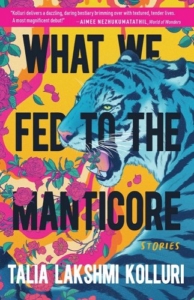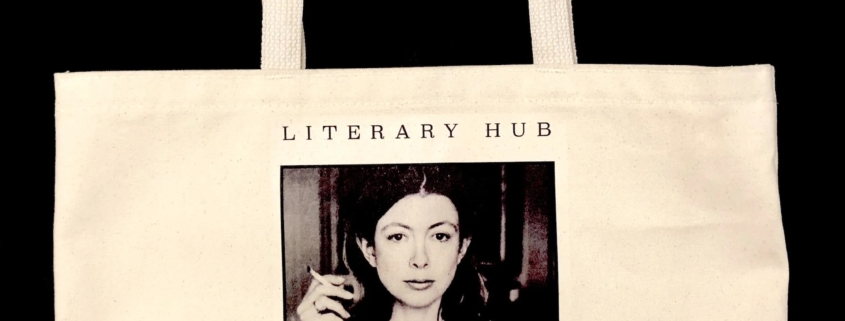Reading Around
I read a number of book- or writing-related blogs, including CrimeReads and LitHub, not in any orderly way (you understand) but sort of when they hit my email at the right time and when I’m of the right mind.
Just now I am between big deadlines. (What does that mean?) Last week I turned in my portfolio for my Creative Nonfiction Class, and, inspired by 1) a haircut (long story there) and 2) this quote from an interview at LitHub, I decided to go back to my mystery novel and finish it. For real. If nothing else, I will give a copy to the woman who cuts my hair.
I decided to share the LitHub quote with you because I want to make sure I can find it again.
If you want to read the entire feature (“5 Writers, 7 Questions, No Wrong Answers”), follow this link: https://lithub.com/lit-hub-asks-5-writers-7-questions-no-wrong-answers-4/
Talia Lakshmi Kolluri is the author of What We Fed to the Manticore, a collection of 9 stories. This is her response to the  last question:
last question:
“How do you contend with the hubris of thinking anyone has or should have any interest in what you have to say about anything?”
Talia Lakshmi Kolluri: I think I contend with it by assuming that nobody has any interest in what I have to say about anything which is why it’s always a nice surprise when people do! I wrote this book because I needed to write it. That’s the only reason I ever write anything, because the words must leave me through some avenue. Nobody is required to be interested in them at all. But if they are, I hope it’s because they needed to read them, and that they were helpful in some way.




Thanks. I read (get) Lit Hub, but had missed this item.
Then I found this, in my email from Lit Hub today: “It took months of OCD treatment and two Brené Brown books to understand there is no ‘right’ or ‘wrong’ in writing—there are only decisions.” (Elissa Bassist reflects on treating her writers’ block by treating her OCD. | Lit Hub Memoir) Which SO makes me wonder about my own process.
I agree with her statement. I need to finish my book and make sure the words convey what I originally intended. I think it’s great to pay attention to editors and strengthen my writing by listening, but it’s very important to stay true to myself. I look forward to reading your mystery.
I love hearing this, Lori, the bit about finishing, and about staying true to yourself. Yes, yes — please!
Just the words I needed to see this morning. Thank you. And have fun (or whatever it is you need) writing your mystery novel! I’m quite fond of that genre, when written by smart, literary women. I expect more than one person would be interested in what you’d do there.
Thank you, Rita. I’ve had good reports from Beta readers and mostly have to learn to let go of my perfectionism–or drive toward that. It’s a helpful quality (I think) in writing poems, but not so much in long-form writing. Geez!
Oh, yes! I think perfectionism had much to do with why I wrote poems when my children were young. I am a reviser more than writer, and the idea of the amount of revision a long work would require was overwhelming. (Still is, I suppose, though I no longer have the excuse of children to raise.)
I concur with her assertion. I must complete my book and ensure that the words accurately reflect my original intentions. It’s fantastic, in my opinion, to pay attention to editors and improve my work via listening, but it’s crucial to be loyal to oneself. I’m excited to read your mystery.
It’s that balance between, isn’t it? Thank you for commenting!